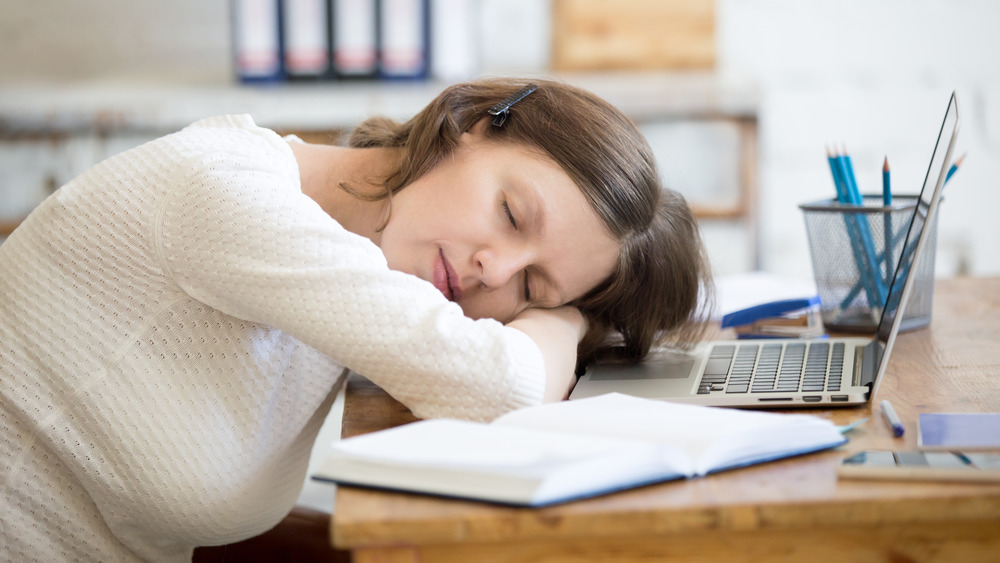The Best Thing To Do If You Feel Tired After You Eat
Anyone who's overindulged in a particularly delicious holiday meal can relate to the exhausting slump that usually follows the culinary high. Medical professionals have actually assigned a name to the post-meal experience: "postprandial somnolence," aka the food coma (via Verywell Fit). Whatever you call it, the experience is a common one — fatigue and a feeling of heavy sluggishness that hits shortly after the meal ends and can last for several hours.
There are several factors that can contribute to post-meal exhaustion, including prior sleep deprivation, overeating, and the type of food you eat. Meals that are high in protein and carbohydrates, as well as processed foods, contribute to tiredness (via Medical News Today).
But the main culprit may be something totally out of your control — your circadian rhythm, or your body's internal clock which regulates predictable periods of alertness and sleepiness. Not surprisingly, according to the National Sleep Foundation, peak sleepiness occurs twice per day, once at two in the morning, and then another time at about two in the afternoon.
Getting outside for a walk can help with post-meal tiredness
Paul Hokemeyer, a Manhattan-based psychologist, told TIME, "No matter how much we want to get done during the workday, the truth of the matter is that we are physically limited by the circadian rhythm of our bodies. This rhythm is nature's way of telling us when to work and when to rest. And in the afternoon, our bodies go into recharge mode."
Suddenly the Spanish custom of the afternoon siesta sounds like a great idea. But what can you do if you feel your energy level dropping after eating, but you just can't squeeze in a 20-minute snooze? Chewing gum, taking a walk, drinking some water or a cup of coffee, having a healthy snack, or even playing with your ears, oddly enough, can help relieve the slump. And, according to Verywell Health, if even those options aren't possible, you can just power through and wait for the sleepiness to pass. Your circadian rhythm will eventually shift back to its more "alert" mode, with or without a nap.


